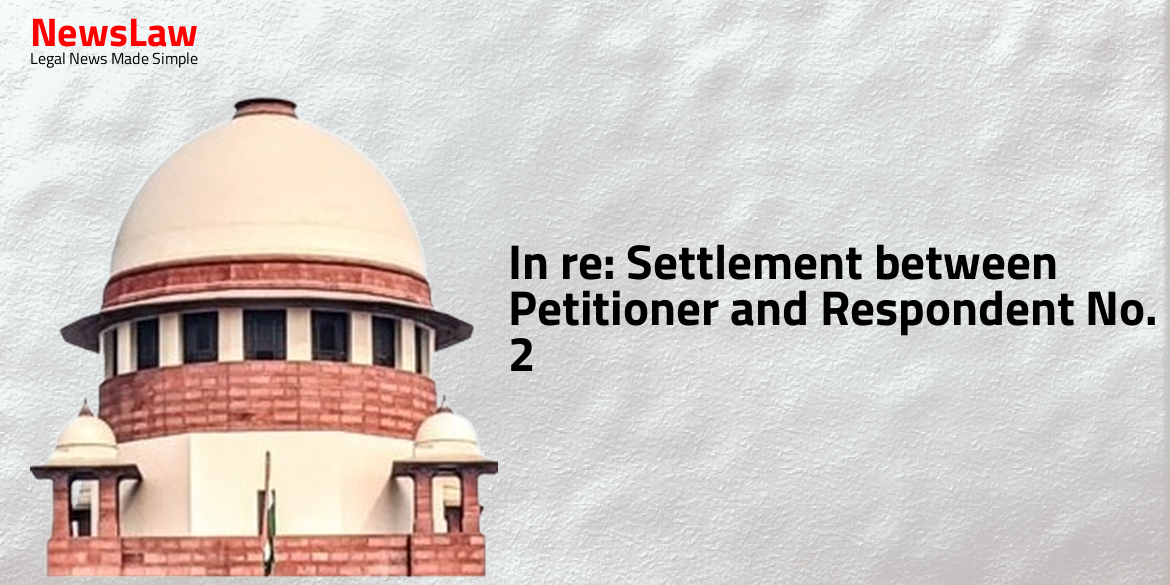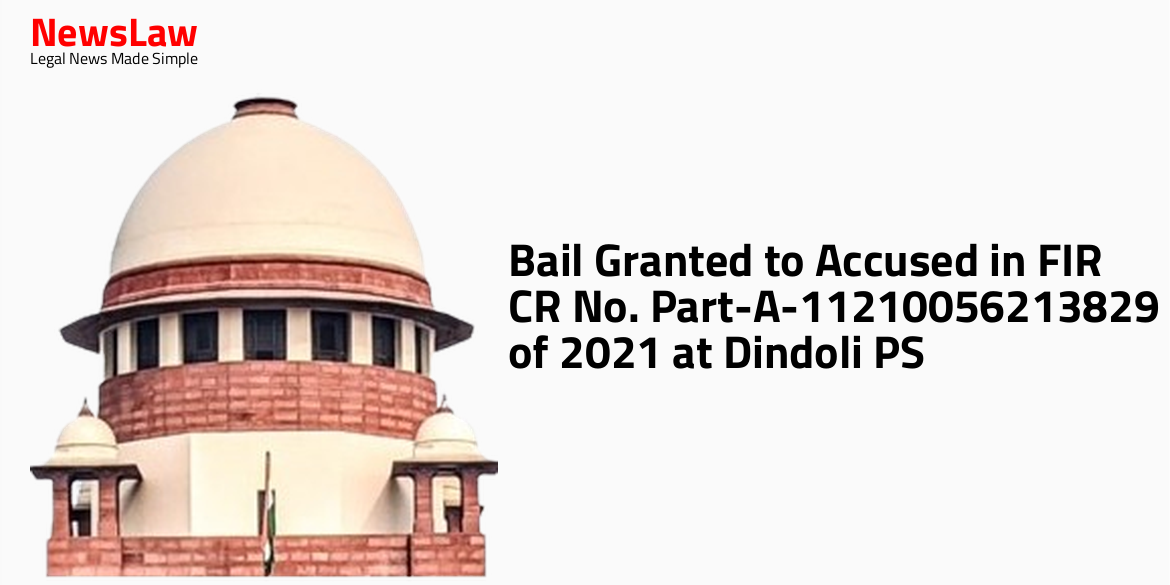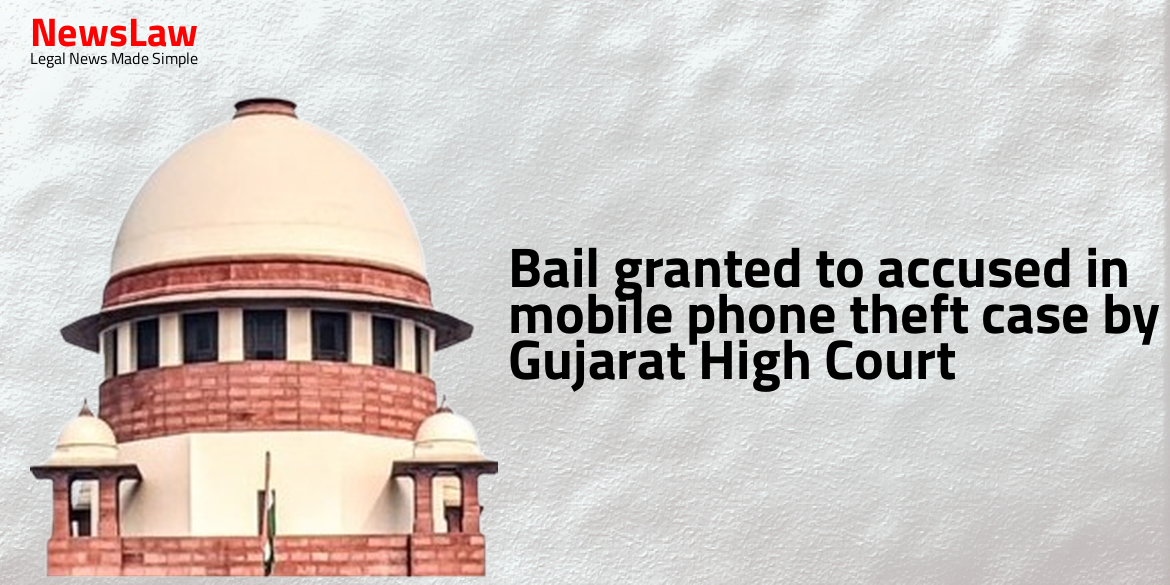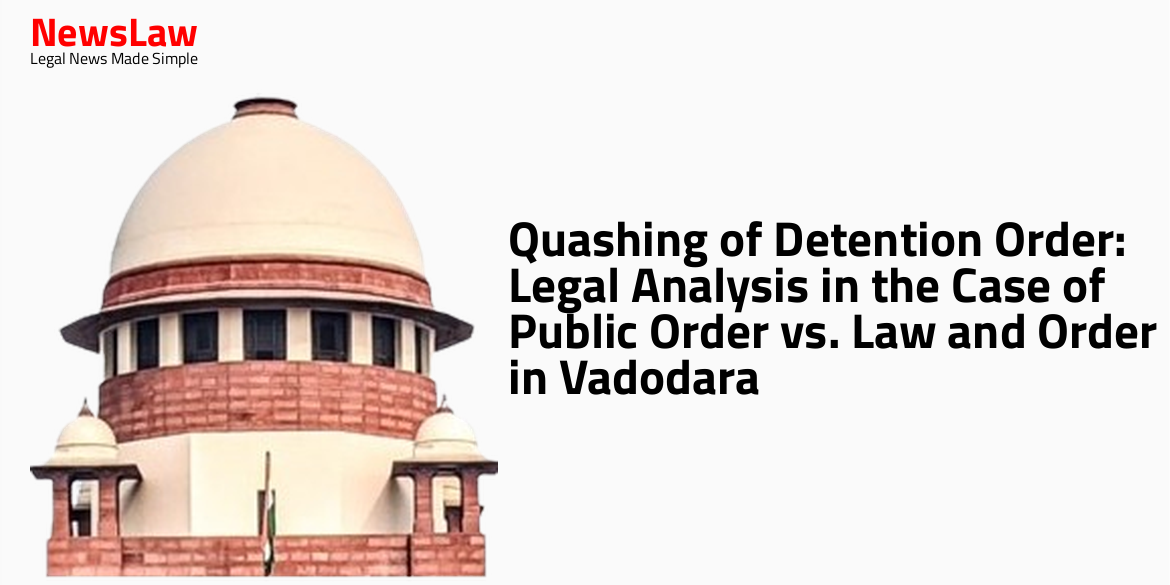A recent legal judgment by the Gujarat High Court addressed the settlement between the petitioner and Respondent No. 2 in a case involving allegations under Sections 294(b) and 506(2) of the IPC. The Court considered the necessity of exercising inherent powers under Section 482 of the CrPC and emphasized on sound principles guiding such decisions. This blog delves into the details of the case and the Court’s ruling on the quashing of proceedings. #LegalJudgment #GujaratHighCourt
Arguments
- The original complainant has settled the dispute amicably with the petitioner.
- The original complainant has filed an Affidavit stating the resolution of the dispute.
- The original complainant has no objection to quashing the proceedings as there is no remaining grievance.
- The impugned FIR was filed by respondent No.2, alleging an affair between his wife and the petitioner.
- Respondent No.2 filed the complaint after being threatened by the accused while in the market.
- The petitioner has prayed to quash and set aside the FIR CR No.11195050240257 of 2024 registered with Tharad Police Station, District Banaskantha.
- The FIR pertains to offences punishable under Sections 294(b) and 506(2) of the Indian Penal Code, 1860.
- The petitioner seeks to quash all other consequential proceedings arising from the said FIR.
Analysis
- The High Court must carefully consider if the power under section 482 of the CrPC is necessary.
- The decision made using this power should be based on sound principles.
- The inherent power should not be used to stop a legitimate prosecution.
- The High Court, being the highest court of a State, should generally avoid giving a prima facie decision when facts are incomplete and hazy.
- Evidence should be collected and produced before the Court for a clearer understanding of the case.
- Issues, whether factual or legal, of significant magnitude should have sufficient material before making a decision.
- The wide powers under Section 482 require caution in their exercise.
- The High Court may exercise its extraordinary jurisdiction of quashing proceedings if the allegations in the FIR or complaint are absurd and inherently improbable.
- Various principles laid down by the Apex Court in different cases were considered, such as Gian Singh Vs. State of Punjab & Anr. and Manoj Sharma Vs. State & Ors., among others.
- The present case involved a settlement between the parties, and further continuation of criminal proceedings would cause unnecessary harassment to the petitioner.
- The offence under Section 294(b) of the IPC requires more than just abusive or defamatory words to be proven.
- The Court must ensure that the thing charged is an offence within the plain meaning of the words used in penal statutes and should not strain the words.
- The Supreme Court in various cases has provided guidelines on when the inherent power under Section 482 of the Code can be exercised, such as in the case of State of Haryana v. Bhajan Lal.
- For an offence of criminal intimidation under Section 506(2) of the IPC, the accused must have had the intention to cause alarm to the complainant.
- The exercise of extraordinary power under Art. 226 or inherent powers under Section 482 should be to prevent abuse of court processes or to secure the ends of justice.
- The petition is allowed.
- The court highlighted situations where there is a legal bar to the institution and continuation of criminal proceedings.
- Instances where criminal proceedings are maliciously instituted for personal vendetta were also noted.
- The court emphasized on provisions in the Code or concerned Act that provide redress for grievances of the aggrieved party.
Decision
- Rule made absolute to the extent mentioned
- Impugned FIR CR No. 11195050240257 of 2024 registered with Tharad Police Station, District; Banaskantha quashed
- All consequential proceedings related to the FIR are set aside as far as the petitioner is concerned
- If petitioner is in jail, directed to be released unless needed for another case
- Direct service permitted
Case Title: PARTHBHAI AMULAKHBHAI VYAS Vs. STATE OF GUJARAT
Case Number: R/SCR.A/5647/2024



